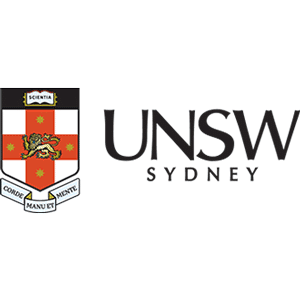Qualify for jobs in banking, stockbroking, investment management, and more.

A Master of Applied Finance degree is useful for newcomers to the finance industry as well as experienced professionals who want to upskill. Graduates gain practical skills for many types of finance careers.
The program covers topics such as business management, investment, risk management, portfolio management, and data analysis. Students develop high-level analytical skills relevant across the financial sector. Let's explore your options for earning and using this degree in Australia.
Overview
A Master of Applied Finance (MAppFin) is a postgraduate program focusing on the practical application of financial skills. It is a more specialised degree than a Master of Finance, which covers broader concepts and theories.
Participants gain hands-on financial knowledge and skills that can be applied in real-world situations. You develop high-level analytical skills relevant in the finance sector and which may also be used to inform business decision-making generally.
The normal course duration is 1.5 years of full-time study or the part-time equivalent. That corresponds with 12 subjects. If you lack a business degree or other finance-related education, you could gain entry by starting with an embedded graduate certificate course.
Related: What is Applied Finance?
Best Online Course in Australia
An online Master of Applied Finance is a popular choice among students as it provides flexibility for busy professionals to study while working full-time. The best online MAppFin program is convenient, with year-round study available, and offers numerous electives.
UNSW Online - Master of Applied Finance
The Master of Applied Finance at UNSW Online develops your ability to manage and lead financial functions in business. The 12-subject program has 8 core units plus 4 electives and aligns closely with Chartered Financial Analyst (CFA) curriculum. Graduates are well positioned to pursue the CFA designation. Key topics include analytics, financial technology and business management. The 100% online program is accelerated, allowing you to earn a masters in as little as 2 years part-time. There is also the option to study the Graduate Certificate or Graduate Diploma in Applied Finance embedded courses.
Master of Financial Technology
If you're familiar with the finance industry and have a good imagination when it comes to technology, a Master of Financial Technology could be the ideal education investment. The applied master's program produces skilled FinTech professionals – who are in huge demand right now. Students learn about the roles of technology in finance, especially future opportunities, and gain knowledge and skills to help drive digital transformation.
UNSW Online - Master of Financial Technology
The 100% online Master of Financial Technology from UNSW is for professionals looking to capture opportunities in the growing FinTech industry. A background in finance and/or technology is ideal, though graduates of any discipline may gain entry by doing a graduate certificate course. The 12-subject program has been created by the UNSW Business School and will provide you with an excellent understanding of how to use technology to innovate in financial services. Subjects include technical tools for FinTech, problem-solving methods, decentralised finance, and tech disruption in finance and lending. Each subject takes 7 weeks of part-time study.
Why the Masters of Applied Finance is Worthwhile
The Master of Applied Finance is worth it for those who want to build a career in finance, banking, investment, or management. The degree enables you to develop practical financial skills that are useful to companies and other organisations.
Graduates can apply financial expertise to numerous money and investment problems. A MAppFin also helps aspiring managers to accelerate their careers and advance into leadership positions by building financial acumen.
Jobs in the financial sector return some of the highest average salaries in Australia. Finance masters have a high ROI, often producing 6-figure base salaries. Potentially lucrative roles include investment banking analyst, portfolio manager, finance manager, and risk manager.
Course Structure
The study requirements for a MAppFin are similar to what you do in a MFin course. There may be a greater emphasis on techniques, and more professional practice subjects. Students explore topics such as investments, equity markets, derivatives, consumer financial services, and venture capital.
The subject examines topical issues in applied finance, which depend on prevailing financial and economic conditions. Topics may be drawn from the fields of investment management, financial systems, corporate financial strategy and managing risk. Underlying theory and research skills are combined while maintaining a practical emphasis. Communication, negotiation and collaborative skills are developed. The Capstone unit comes towards the end of the program.
Source: Macquarie University
Students develop frameworks and tools for solving real-world financial problems at a corporate level. The course stresses the modern fundamentals of corporate financial decision making, referring to valuation, financing, and payout policies. Graduating students are able to: explain key concepts and terms in corporate finance, value firms using multiple methods, optimise a company’s capital structure using appropriate sources of capital, and present ideas using financial frameworks.
Source: UNSW MAppFin
The subject focuses on the share market and equity as an asset class. We discuss how shares are traded and examine the different sectors of the Australian share market, which include industrial, resources and mid-small capitalised companies. Students explore shares as an investment and analyse economic factors that influence equity markets. You also do independent case-study research to make investment recommendations to buy, hold or sell shares.
Source: Kaplan Professional
The subject builds a framework to help you understand modern investments. Students learn to compare investment strategies and explore risk-return relations. Topics include measuring risks and returns, pricing risk, valuing equities and fixed-income securities, optimising portfolios, and hedging using derivatives. The goal is to prepare you to handle market challenges.
Source: UNSW MAppFin
The subject furthers student understanding of futures and options contracts and how they're used to manage risk, building on material covered earlier in the program. You receive an overview of options, futures, forwards and swaps. These are discussed with respect to different assets / commodities, including stocks, interest rates and foreign exchange. The models used to price these instruments are examined, along with risk management techniques.
Source: Australian National University
The subject gives students an appreciation of services and products available to consumers, departing from the institutional focus elsewhere in the MAF course. Students learn to (a) discuss current issues for finance professionals; (b) explain how the issues impact practical areas of financial services; and (c) develop research skills for investigating current and future issues for industry professionals.
Source: University of Western Australia
The subject covers pricing, hedging and managing risk with fixed income. Students study analytical and numerical techniques, duration measures, and interactions between interest rate risk, credit risk and mortgage-backed securities. Graduates will be able to: (a) explain relationships among a bond’s price, coupon rate, maturity and yield-to-maturity (b) discuss bond pricing and calculate the flat price, accrued interest and the full price (c) explain duration and convexity and use them to manage bond portfolio risk (d) define forward rates and calculate spot rates from forward rates and vice versa (e) discuss mortgage-backed securities and pre-payment risk and (f) explain credit-related risks affecting corporate bonds.
Source: UNSW Online
The subject examines venture capital and private equity investments, focusing on issues to do with funding entrepreneurial firms. We depart from conventional investment approaches where you would examine risk and return of publicly listed securities, instead looking at financing innovation-intensive private enterprises.
Source: UNSW Online
Entry requirements vary by program. A degree in business (or other cognate discipline) with solid grades is usually sufficient to be eligible for most master's degrees. An online Graduate Certificate in Finance provides an entry pathway for graduates with non-business degrees as well as people with no degree but significant professional experience.



